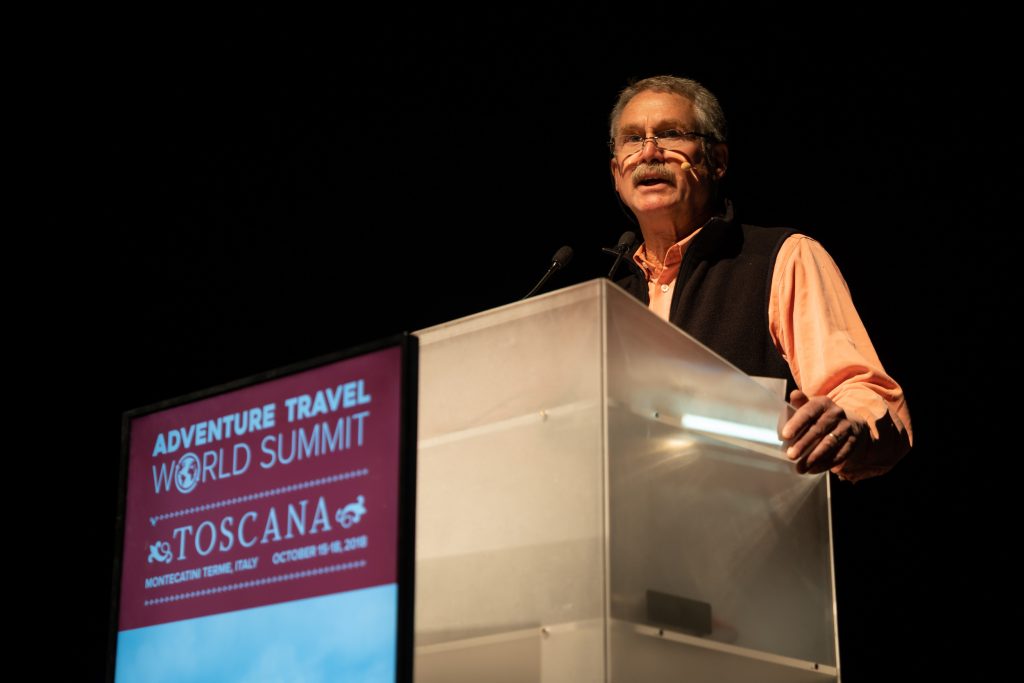Why do people crave adventure travel? Maybe they seek learning opportunities or connections with new people. Perhaps they appreciate the physical effort required of cycling or climbing, or crave the adrenaline rush of rafting whitewater rapids. But at the most basic level, perhaps people seek a return to “the source” from which they spring.

Reflecting on this idea of rediscovering that sense of vitality and inspiration, David Quammen, an author and explorer, delivered the Adventure Travel World Summit’s opening keynote address, which was sponsored by National Geographic Traveler and Switzerland. Quammen’s research for 16 books and numerous articles has taken him into remote and hard-to-reach destinations around the globe, including participating in parts of a 2,000-mile trek through the Congo with conservationist and ecologist J. Michael Fay. Quammen recalled one night in particular when the trekking party, in need of a water source for cooking, drinking, and bathing, encountered a tiny, nameless stream. “It was the wellspring that would sooth us, refresh us, strengthen us. It wasn’t our ultimate destination. It was just part of the journey, but it meant something extra at that point in time,” he said.
Though Quammen’s experience was perhaps a bit extreme for some people, he reminded delegates there are various degrees of adventure. “There are many people — restless souls — with a bit more confidence, a bit more fitness, a bit more curiosity than the average tourist who want a sample of what a serious jungle expedition might be like.” Research released by the Adventure Travel Trade Association (ATTA) in 2017 revealed travelers are increasingly seeking transformative experiences. This motivation offers a lot of opportunity for adventure travel professionals. However, even though travelers seek these grounding, self-reflective experiences, they may need guidance to discover — or rediscover — themselves and their relationships with others and the world around them.
As individuals travel around the world and have their own adventures, their experiences not only impact themselves but reverberate beyond that moment in time. "The more people on this planet who seize the chance of seeing a wild chimpanzee or tiger in its natural habitat, the fewer people will harbor the disastrous illusion that our wild creatures and our wild places are expendable,” Quammen said. “The more travelers who visit villages and ancient cultures on foot with minimal pandering causing minimal disturbance, the more we'll appreciate that those cultures, too, are aspects of the precious and enduring diversity of planet Earth.”

His session, Exploration, set the tone for this year’s annual event, which is based on the theme Wellspring and the understanding of pure and fundamental truths. This idea was emphasized during the Summit’s opening remarks, during which Casey Hanisko, president of the ATTA / Adventure 360, noted more than 50 percent of the Summit’s delegates are attending for the first time. “Our community that loves meeting new people, developing relationships, and making friends continues to grow and re-establish that sense of passion for adventure travel,” she said.
Given the frantic and often chaotic nature of life in general, Quammen’s message served as both a good reminder and welcome invitation to delegates — and the perfect launchpad from which to embrace the week’s events.
